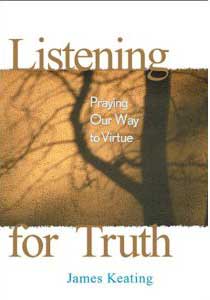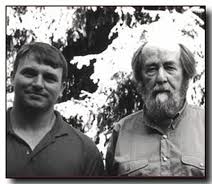Episode 5 – Seeking Truth with Sharon Doran, hosted by Bruce McGregor. Â Ep 5 – “Do Whatever He Tells You”, the wedding feast at Cana.
[powerpress]
 Sharon Doran serves as the teaching director of “Seeking Truth.†An experienced Bible Study teacher, Sharon has a passion for scripture that will motivate and challenge you to immerse yourself in God’s Word and apply His message to your
Sharon Doran serves as the teaching director of “Seeking Truth.†An experienced Bible Study teacher, Sharon has a passion for scripture that will motivate and challenge you to immerse yourself in God’s Word and apply His message to your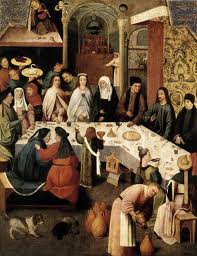 every day life.
every day life.
Episode 5 – The wedding feast of Cana and the intercessory role of Mary.  The significance of the term “woman”.  The “blessed” women of the bible…there’s only two others, besides Mary….the “head-crushers”…a fascinating exploration of the term.
 “Seeking Truth†is an in depth Catholic Bible Study, commissioned by the Archdiocese of Omaha in response to John Paul II’s call to the New Evangelization as well as Pope Benedict XVI’s exhortation for all Catholics to study scripture. To learn more go to: www.seekingtruth.net
“Seeking Truth†is an in depth Catholic Bible Study, commissioned by the Archdiocese of Omaha in response to John Paul II’s call to the New Evangelization as well as Pope Benedict XVI’s exhortation for all Catholics to study scripture. To learn more go to: www.seekingtruth.net
Tags: bible, Bible Study, blessed virgin mary, catholic, catholic podcast, catholic prayer, cathollc spirituality, gospel of john, scripture, seeking truth, Sharon Doran
This entry was posted on Wednesday, June 29th, 2011 at 3:47 am
You can follow any responses to this entry through the RSS 2.0 feed.
“Why are you afraid, O men of little faith?”
[powerpress=”daily-scripture”]
an excerpt from today’s reflection by Don Schwager:
What is stronger than fear, even the fear of death? Scripture gives an answer: “There is no fear in love, but perfect love casts out fear†(1 John 4:18). The Wisdom of Solomon tells us that “love is stronger than death†(Song of Songs 8:6). Jesus’ sleeping presence on the storm-tossed sea reveals the sleeping faith of his disciples. They feared for their lives even though their Lord and Master was with them in the boat. They were asleep to Christ while he was present to them in their hour of need. The Lord is ever present to us. And in our time of testing he asks the same question: Why are you afraid? Have you no faith? Do you recognize the Lord’s presence with you, especially when you meet the storms of adversity, sorrow, or temptation? Whenever we encounter trouble, the Lord is there with the same reassuring message: “It is I, do not be afraidâ€.
“Lord, may I always recognize your abiding presence with me. And in times of trouble or fear may I find courage and strength to respond as you would. Help me to rely upon you in all circumstances and to trust in your help both in adversity and in temptation”.
for the full reflection visit : Daily Reading and Meditation
Tags: catholic, catholic podcast, catholic prayer, cathollc spirituality, don schwager, gospel of matthew
This entry was posted on Tuesday, June 28th, 2011 at 12:07 am
You can follow any responses to this entry through the RSS 2.0 feed.
[powerpress]Msgr. John Esseff is one of the most extraordinary men I have ever spoken with. He is the author of “Building A Kingdom of Love: Your Role in the Triumph of the Sacred Heart”. Â Msgr. Esseff is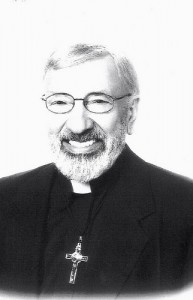 widely known as a spiritual master who works with the Institute for Priestly Formation. Ordained a priest in 1953 Â for the Diocese of Scranton, PA, Msgr. Esseff served in parishes and as an exorcist for the diocese. Â Serving the poor in areas around the world, he would become a confessor and retreat director for Blessed Mother Teresa, and continues that role today for the
widely known as a spiritual master who works with the Institute for Priestly Formation. Ordained a priest in 1953 Â for the Diocese of Scranton, PA, Msgr. Esseff served in parishes and as an exorcist for the diocese. Â Serving the poor in areas around the world, he would become a confessor and retreat director for Blessed Mother Teresa, and continues that role today for the  sisters of the Missionaries of Charity. Â He would encounter St. Padre Pio and would be considered one of the St Pio’s spiritual children.
sisters of the Missionaries of Charity. Â He would encounter St. Padre Pio and would be considered one of the St Pio’s spiritual children.
Msgr. John Esseff is on a mission from God. He is one of the founders of the Sacred Heart Apostolate.  He hopes to have the Sacred Heart of Jesus enthroned as King of the entire world, family by family, church by church, dioceses by diocese…country by country.
Everyone can participate and support this mission. For information about enthroning the Sacred Heart of Jesus in your home, go to www.sacredheartapostolate.com. Then, you can keep Msgr. Esseff and his mission in your prayers. For more insights and information about Msgr. Esseff, his website is:http://home.catholicweb.com/msgrjohnesseff/index.cfm.
to www.sacredheartapostolate.com. Then, you can keep Msgr. Esseff and his mission in your prayers. For more insights and information about Msgr. Esseff, his website is:http://home.catholicweb.com/msgrjohnesseff/index.cfm.
Tags: catholic, catholic podcast, catholic prayer, cathollc spirituality, sacred heart apostolate, sacred heart of jesus
This entry was posted on Monday, June 27th, 2011 at 8:53 am
You can follow any responses to this entry through the RSS 2.0 feed.
“Teacher, I will follow you wherever you go”
[powerpress=”daily-scripture”]
an excerpt from today’s reflection by Don Schwager:
The Lord Jesus calls each of us personally to follow him as our Lord, Teacher, and Master. He invites us into a personal relationship of love and friendship, trust and commitment. The love of God frees us from attachments to other things so we can give ourselves freely to God for his glory and for his kingdom. It was love that compelled the Lord Jesus to lay down his life for us. And he calls us in love to give our all for him.
What can keep us from giving our all to God? Fear, self-concern, pre-occupation and attachment to other things. Even spiritual things can get in the way of having God alone as our Treasure if we put them first. Detachment is a necessary step if we want to make the Lord our Treasure and Joy. It frees us to give ourselves without reserve to the Lord and to his service. There is nothing greater we can do with our lives than to place them at the service of the Lord and Master of the universe. We cannot outgive God in generosity. Jesus promises that those who are willing to part with what is most dear to them for his sake “will receive a hundred times as much and will inherit eternal life†(Matthew 19:29). Is there anything holding you back from giving your all to the Lord?
“Take, O Lord, and receive my entire liberty, my memory, my understanding, and my whole will. All that I am and all that I possess you have given me. I surrender it all to you to be disposed of according to your will. Give me only your love and your grace – with these I will be rich enough and will desire nothing more.†(Prayer of Ignatius Loyola, 1491-1556)
for the full reflection visit : Daily Reading and Meditation
Tags: catholic, catholic podcast, catholic prayer, cathollc spirituality, don schwager, gospel of matthew
This entry was posted on Monday, June 27th, 2011 at 7:45 am
You can follow any responses to this entry through the RSS 2.0 feed.
Tags: catholic, catholic podcast, catholic prayer, cathollc spirituality, st thomas aquinas
This entry was posted on Sunday, June 26th, 2011 at 11:55 am
You can follow any responses to this entry through the RSS 2.0 feed.
When you listen to Mike Aquilina express the mystery and beauty of the Eucharist, you know it is truly coming from someone who has been deeply touched in his depths of his own heart by this tremendous sacrament of love. I love talking with Mike, he strengthens and encourages my own faith so much…he is such a gift to the body of Christ!  In “The Fire of God’s Love” he passes on insights on the Eucharist to inspire us all.  Saints and popes are represented in this collection, but also reflections from folks representing in our own time, like J.R.R. Tolkien,
know it is truly coming from someone who has been deeply touched in his depths of his own heart by this tremendous sacrament of love. I love talking with Mike, he strengthens and encourages my own faith so much…he is such a gift to the body of Christ!  In “The Fire of God’s Love” he passes on insights on the Eucharist to inspire us all.  Saints and popes are represented in this collection, but also reflections from folks representing in our own time, like J.R.R. Tolkien, 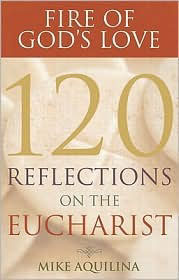 Maria Montessori, Conrad Hilton, and George Wiegel.
Maria Montessori, Conrad Hilton, and George Wiegel.
[powerpress]
Tags: catholic, catholic podcast, catholic prayer, cathollc spirituality, eucharist, eucharistic devotion, holy eucharist, Mike Aquilina More, st. anthony messenger books, st. paul center for biblical theology
This entry was posted on Sunday, June 26th, 2011 at 8:16 am
You can follow any responses to this entry through the RSS 2.0 feed.
Tags: catholic, catholic podcast, catholic prayer, cathollc spirituality, classical music, feast of corpus christi, mozart, sacred music, st thomas aquinas
This entry was posted on Sunday, June 26th, 2011 at 12:19 am
You can follow any responses to this entry through the RSS 2.0 feed.
Tags: catholic, catholic podcast, catholic prayer, cathollc spirituality, corpus cristi
This entry was posted on Sunday, June 26th, 2011 at 12:01 am
You can follow any responses to this entry through the RSS 2.0 feed.
 Episode 7-Listening For Truth– Resurrection people who live out of the power of the Resurrection.  Theological virtues, faith, hope and love, are given to us in the fullest sense through the sacraments and how we receive and open our hearts to that gift.  Moving our affection from sin to truth.  How do we prepare ourselves to receive moral truth?
Episode 7-Listening For Truth– Resurrection people who live out of the power of the Resurrection.  Theological virtues, faith, hope and love, are given to us in the fullest sense through the sacraments and how we receive and open our hearts to that gift.  Moving our affection from sin to truth.  How do we prepare ourselves to receive moral truth?
[powerpress]
Deacon James Keating, PhD, the director of Theological Formation for the Institute for Priestly Formation, located at Creighton University, in Omaha, is making available to â€Discerning Hearts†and all who listen, his series of programs entitled “Listening For Truthâ€.
Listening for Truth leads men and women in a search for a fuller experience of God that begins in prayer, grows in the rediscovery of our spiritual being, and grounds itself in the truth of Jesus Christ. A presentation of the Christian life as an engagement of the whole person — body, mind, and soul — in the challenge of daily living.
For more information on the “Institute of Priestly Formation†and for other material available by Deacon Keating, just click here
Don’t forget to pickup a copy of “Communion with Christ†, it is one of the best audio sets on prayer…ever!
Check out Deacon Keating’s “Discerning Heart†page
Tags: catholic, catholic podcast, catholic prayer, cathollc spirituality, conversion, creighton university, Deacon James Keating, Deacon Keating, ethics, institute for priestly formation, moral conversion, morality, morals, Resurrection, spiritual formation, theological formation, Theological virtues, virtue
This entry was posted on Thursday, June 23rd, 2011 at 11:10 am
You can follow any responses to this entry through the RSS 2.0 feed.
“Like a foolish man who built his house upon the sand”
[powerpress=”daily-scripture”]
an excerpt from today’s reflection by Don Schwager:
What’s the significance of the story for us? The kind of foundation we build our lives upon will determine whether we can survive the storms and trials of life that are sure to come. Builders usually lay their foundations when the weather and soil conditions are at their best. It takes foresight to know how a foundation will stand up against adverse conditions. Building a house on a flood plain, such as a dry river-bed, is a sure bet for disaster! Jesus prefaced his story with a warning: We may fool one another with our words, but God cannot be deceived. He sees the heart as it truly is – with its motives, intentions, desires, and choices (Psalm 139:2). There is only one way in which a person’s sincerity can be proved, and that is by one’s practice. Fine words can never replace good deeds. Our character is revealed in the choices we make, especially when we must choose between what is true and false, good and evil. Do you cheat on an exam or on your income taxes, especially when it will cost you? Do you lie, or cover-up, when disclosing the truth will cause you pain or embarrassment? A true person is honest and reliable before God, neighbor, and oneself. Such a person’s word can be taken as trustworthy.
What can keep us from falsehood and spiritual disaster? If we make the Lord and his word the rock and foundation of our lives, then nothing can shake us nor keep us from God’s presence and protection. Is the Lord and his word the one sure foundation of your life?
“Lord Jesus, you are the only foundation that can hold us up when trials and disaster threaten us. Give me the wisdom, foresight, and strength of character I need to do what is right and good and to reject whatever is false and contrary to your will. May I be a doer of your word and not a hearer only.”
for the full reflection visit : Daily Reading and Meditation
Tags: catholic, catholic podcast, catholic prayer, cathollc spirituality, don schwager, gospel of matthew
This entry was posted on Thursday, June 23rd, 2011 at 5:13 am
You can follow any responses to this entry through the RSS 2.0 feed.
THE PSALMS: THE BOOK OF PRAYER PAR EXCELLENCE
VATICAN CITY, 22 JUN 2011 (VIS) – Benedict XVI dedicated his catechesis during this morning’s general audience to what he described as “the book of prayer par excellence, the Book of Psalms”. The audience was held in St. Peter’s Square in the presence of 10,000 people.
The 150 Psalms of the Book of Psalms “express all human experience“, said the Pope. “All the truth of the believer comes together in those prayers, which first the People of Israel and later the Church adopted as a special way to mediate their relationship with the one God, and as an adequate response to His having revealed Himself in history“.
“Despite the many forms of expression they contain”, the Psalms “can be divided into two broad categories: … supplication associated with lamentation, and praise. These two dimensions are related, almost indivisible, because supplication is animated by the certainty that God will respond, and this opens the way to praise and thanksgiving; while praise and thanksgiving arise from the experience of salvation received, which presupposes the need for help expressed in the supplication. … Thus, in the prayer of the Psalms, supplication and praise intertwine and fuse together in a single song which celebrates the eternal grace of the Lord as He bows down to our frailty”.
“The Psalms teach us to pray”, the Holy Father explained. “In them, the Word of God becomes the word of prayer. … People who pray the Psalms speak to God with the words of God, addressing Him with the words He Himself taught us. … Through these words it is also possible to know and accept the criteria of His actions, to approach the mystery of His thoughts and His ways, so as to grow and develop in faith and love”.
“By teaching us to pray”, the Pope went on, “the Psalms also teach us that at times of desolation, even
in moments of suffering, the presence of God is a source of wonder and consolation. We may weep, plead and seek intercession, … but in the awareness that we are advancing towards the light, where praise will be unending”.
“Equally important and significant are the manner and frequency in which the words of the Psalms appear in the New Testament, where they assume and underline that prophetic significance suggested by the link of the Book of Psalms with the messianic figure of David. In His earthly life the Lord Jesus prayed with the Psalms, and in Him they reach definitive fulfilment and reveal their fullest and deepest meaning. The prayers of the Book of Psalms, with which we speak to God, speak to us of Him, they speak of the Son, image of the invisible God Who fully reveals the Father’s face to us.
Thus Christians, by praying the Psalms, pray to the Father in Christ and with Christ, seeing those songs in a new perspective which has its ultimate interpretation in the Paschal Mystery”.
Having completed his catechesis and delivered greetings in various languages, the Pope recalled the fact that tomorrow is the Feast of Corpus Christi. He invited everyone in Rome, residents and pilgrims alike, to participate in the Mass he will celebrate at 7 p.m. tomorrow in the basilica of St. John Lateran, and in the subsequent procession along Via Merulana to the basilica of St. Mary Major. “I invite you”, he said, “to join this act of profound faith towards the Eucharist, which represents the most precious treasure of the Church and of humankind”.
AG/Â Â Â Â Â Â Â Â Â Â Â Â Â Â Â Â Â Â Â Â Â Â Â Â Â Â Â VIS 20110622 (590)
For the Psalms On-Line
The more extensive translation:
ZE11062202 – 2011-06-22
Permalink: http://www.zenit.org/article-32912?l=english
ON LEARNING TO PRAY WITH THE PSALMS
Addressing Him “With the Words That He Himself Gives Us”
VATICAN CITY, JUNE 22, 2011 (Zenit.org).- Here is a translation of the Italian-language catechesis Benedict XVI gave today during the general audience held in St. Peter’s Square. The Pope continued with his series of catecheses on prayer, turning today to a consideration of the Book of Psalms.
* * *
Dear brothers and sisters,
In the preceding catecheses, we paused to consider a number of Old Testament figures who are particularly significant for our reflection on prayer. I spoke about Abraham, who intercedes for the foreign cities; about Jacob, who in his nighttime combat receives a blessing; about Moses, who begs for forgiveness for his people; and about Elijah, who prays for the conversion of Israel. With today’s catechesis, I would like to begin down a new path: Rather than commenting on particular accounts of persons at prayer, we will enter into the “prayerbook” par excellence, the Book of Psalms. In the upcoming catecheses we will read and meditate on a number of the most beautiful psalms which are also dearest to the Church’s tradition of prayer. Today I would like to introduce them by speaking about the Book of Psalms as a whole.
The Psalter presents itself as a “formulary” of prayers, a collection of 150 psalms that the biblical tradition gives to the people of believers in order that they may become their — our prayer — our way of addressing God and of relating to Him. In this book, the whole of human experience with its many facets finds expression, along with the entire range of emotions that accompany man’s existence. In the Psalms, joy and suffering, desire for God and the perception of one’s own unworthiness, delight and the sense of abandonment, trust in God and painful solitude, fullness of life and fear of death are all interwoven and expressed. The believer’s whole reality flows into these prayers, which first the people of Israel and then the Church took up as a privileged meditation on the relationship with the one God, and the fitting response to His self-revelation in history.
As prayer, the Psalms are manifestations of the soul and of faith, in which everyone can recognize himself and in which there is communicated that experience of special closeness to God, to which each man is called. And it is the whole complexity of human existence that converges in the complexity of the different literary forms of the various psalms: hymns, lamentations, individual and collective supplication, songs of thanksgiving, penitential psalms, and other genre that are found in these poetic compositions.
Despite this wide range of expression, two great areas can be identified that synthesize the prayer of the Psalter: petition, which is connected with lament, and praise — two interconnected and almost inseparable dimensions. For petition is animated by the certainty that God will respond, and this opens up to praise and thanksgiving; and praise and thanksgiving flow from the experience of salvation received, which assumes the need for the help expressed by the petition.
In petition, the one who prays laments and describes his situation of distress, of danger, of desolation; or, as in the penitential psalms, he confesses guilt and sin, and asks to be forgiven. He lays bare his neediness before the Lord, in the confidence of being heard, and this implies an acknowledgement of God as good, as desirous of the good, and as the “lover of life” (cf. Wisdom 11:26) who is ready to help, save and forgive. Thus, for example, the Psalmist in Psalm 31 prays: “In thee, O Lord, do I seek refuge; let me never be put to shame [ … ] take me out of the net which is hidden for me, for thou art my refuge (verses 2,5 [1,4]). Therefore, already in the lament something of praise may emerge, announcing itself in the hope of divine intervention, and becoming explicit once divine salvation has become a reality.
In an analogous way — in the psalms of thanksgiving and of praise — in remembering the gift received or in contemplating the greatness of God’s mercy, one recognizes one’s own littleness as well as one’s need for salvation, which is at the foundation of petition. In this way, one confesses to God one’s own condition as a creature, inevitably marked as it is by death, and yet the bearer of a radical desire for life. For this reason, in Psalm 86 the Psalmist exclaims: “I give thanks to thee, o Lord my God, with my whole heart, and I will glorify thy name forever. For great is thy steadfast love toward me; thou hast delivered my soul from the depths of Sheol” (verses 12, 13). In this way, in the prayer of the Psalms, petition and praise are interwoven and blend together into one unique song that celebrates the Lord’s eternal grace that bends down to our frailty.The book of the Psalter was given to Israel and to the Church precisely in order that the people of believers might be permitted to unite themselves to this song. The Psalms, in fact, teach us to pray. In them, the Word of God becomes the word of prayer — and they are the Psalmists’ inspired words — which also become the word of the one who prays the Psalms. This is the beauty and the special nature of this biblical book: Unlike other prayers we find in sacred Scripture, the prayers contained [in the Book of Psalms] are not inserted into a narrative story which specifies either their meaning or their function. The Psalms are given to the believer precisely as a text of prayer, which has as its one end that of becoming the prayer of the one who takes them up and, with them, addresses himself to God. Since they are the Word of God, he who prays the Psalms speaks to God with the very words that God has given to us; he addresses Him with the words that He Himself gives us. Thus, in praying the Psalms we learn to pray. They are a school of prayer.
Something analogous happens when a child begins to talk; when he learns, that is, to express his feelings, emotions, and needs with words that do not belong to him naturally, but which he learns from his parents and from those who live around him. What the child wants to express is his own personal experience, but the means of expression belong to others; and little by little he appropriates them — the words received from his parents become his words, and through those words he also learns a way of thinking and feeling; he enters into a whole world of concepts, and in this [world] he grows, relates with reality, with men and with God. At last, the language of his parents becomes his language; he speaks with the words received from others, which by now have become his words.
And so it is with the prayer of the Psalms. They are given to us so that we might learn to address ourselves to God, to communicate with Him, to talk to Him about ourselves with His words, to find language for an encounter with Him. And, through those words, it will also be possible to know and to receive the standards of his way of acting, to approach the mystery of his thoughts and of his ways (cf. Isaiah 55:8-9), so as to grow always more in faith and love. As our words are not only words, but also teach us about a real and conceptual world, so also these prayers teach us about the heart of God, for which reason are we able not only to speak with God, but also to learn who God is and — in learning how to speak with Him — we learn what is it to be man, to be ourselves.
In this regard, the title given to the Psaltery by the Jewish tradition appears significant. It is called Tehellim, an Hebraic term that means “songs of praise,” [which comes] from the root word we find in the expression “Halleluiah” — literally: “praise the Lord.” Thus, even though this prayerbook is so multifaceted and complex — with its various literary genre and with its connection between praise and petition – it is ultimately a book of praise, that teaches us to give thanks, to celebrate the greatness of the gift of God, to acknowledge the beauty of His words and to glorify His holy Name.
This is the most fitting response before God’s self-revelation, and the experience of His goodness. By teaching us to pray, the Psalms teach us that, even in the midst of desolation, in suffering, God’s presence remains and is the source of wonder and of consolation; we can cry, beg, intercede, lament, but [we do so] in the knowledge that we are walking toward the light, where praise can be definitive; “in thy light do we see light” (Psalm 36:10 [9]).
But beyond the book’s general title, the Jewish tradition has also given specific titles to many of the psalms, attributing them in great part to King David. A figure of notable human and theological depth, David is a complex personality who passed through the most varied experiences fundamental to life. A young shepherd of his father’s flock — passing through the ups and downs and at times dramatic events of life — he becomes king of Israel, the shepherd of God’s people. Although a man of peace, he fought many wars; an untiring and tenacious seeker of God, yet he betrayed His love, and this is characteristic: He always remained a seeker of God, even though he sinned gravely many times; a humble penitent, he received divine forgiveness, even divine pity, and he accepted a fate marked by suffering. Thus, in all his weakness, David was a king “after God’s own heart” (cf. 1 Samuel 13:14); that is, a passionate man of prayer, a man who knew what it meant to petition and to praise. The connection of the Psalms with this illustrious king of Israel is important, then, for he is a messianic figure, the Lord’s Anointed, in whom the mystery of Christ is in some way foreshadowed.Just as important and meaningful are the ways and frequency with which the words of the psalms are repeated in the New Testament, taking up and underscoring the prophetic value suggested by the Psalter’s connection with the messianic figure of David. In the Lord Jesus, who during His earthly life prayed with the Psalms, they find their definitive fulfillment and reveal their fullest and most profound meaning. The prayers of the Psalter, with which we speak to God, speak to us of Him, they speak to us of the Son, the image of the invisible God (Colossians 1:15), who fully reveals to us the Face of the Father. The Christian, therefore, in praying the Psalms, prays to the Father in Christ and with Christ, taking up those songs within a new perspective, which finds its ultimate interpretative key in the Paschal mystery. Thus do the horizons of the one who prays open up to unexpected realities — each Psalm acquires a new light in Christ and the Psalter is able to shine in all its infinite richness.
Dearest brothers and sisters, let us take this holy book in hand; let us allow ourselves to be taught by God to address ourselves to Him; let us make the Psalter a guide that helps us and accompanies us daily along the way of prayer. And let us, like Jesus’ disciples, also ask: “Lord, teach us to pray” (Luke 11:1), opening our hearts to receive the Teacher’s prayer, in which all prayers attain their fulfillment. Thus, made sons in the Son, will we be able to speak to God calling Him “Our Father.” Thank you.
[Translation by Diane Montagna]
Tags: catholic, catholic podcast, catholic prayer, cathollc spirituality, pope benedict xvi, prayer, psalms
This entry was posted on Wednesday, June 22nd, 2011 at 9:23 am
You can follow any responses to this entry through the RSS 2.0 feed.
“You will know them by their fruits”
[powerpress=”daily-scripture”]
an excerpt from today’s reflection by Don Schwager:
What do grapes, thorns, figs, and thistles have to teach us about the kingdom of God? The imagery used by Jesus would have been very familiar to his audience. A certain thornbush had berries which resembled grapes. And a certain thistle had a flower, which at least from a distance, resembled the fig. Isn’t it the same today? What we “hear” might have a resemblance of the truth, but, in fact, when you inspect it closely, it’s actually false. False prophets or teachers abound today as much as they did in biblical times.
What’s the test of a true or false teacher? Jesus connects soundness with good fruit. Something is sound when it is free from defect, decay, or disease and is healthy. Good fruit is the result of sound living – living according to moral truth and upright character. The prophet Isaiah warned against the dangers of falsehood: Woe to those who call evil good and good evil, who put darkness for light and light for darkness (Isaiah 5:20). The fruits of falsehood produce an easy religion which takes the iron out of religion, the cross out of Christianity, and any teaching which eliminates the hard sayings of Jesus, and which push the judgments of God into the background and makes us think lightly of sin.
How do we avoid falsehood in our personal lives? By being true – true to God, his word, and his grace. And that takes character! Those who are true to God know that their strength lies not in themselves but in God who supplies what we need. The fruit of a disciple is marked by faith, hope and love, justice, prudence, fortitude and temperance. Do you seek to cultivate good fruit in your life and reject whatever produces bad fruit?
“Lord Jesus, may I bear good fruit for your sake and reject whatever will produce evil fruit. Help me grow in faith, hope, love, sound judgment, justice, courage, and self control.”
for the full reflection visit : Daily Reading and Meditation
Tags: catholic, catholic podcast, catholic prayer, cathollc spirituality, don schwager, gospel of matthew
This entry was posted on Wednesday, June 22nd, 2011 at 5:25 am
You can follow any responses to this entry through the RSS 2.0 feed.
“Do not throw your pearls before swine”
[powerpress=”daily-scripture”]
an excerpt from today’s reflection by Don Schwager:
Why does Jesus contrast pearls and holiness with dogs and swine? Pearls were of very great value and even considered priceless. The same with holiness because God is all-holy and he invites us to share in his holiness which is very precious and priceless as well. The Talmud, a rabbinic commentary on the Jewish Scriptures, has a proverbial saying for something which is inconguous or out of place: an ear-ring in a swine’s snout. Jesus’ expression about “pearls before swine” and “not giving dogs what is holy” is very similar in thought (Matthew 7:6). Jesus’ concern here is not with exclusivity (excluding other people from our love, care, and concern), but with purity – the purity of the faith which has been entrusted to us by an all-holy and all-wise God. The early church referenced this expression with the Eucharist or the Lord’s Table. In the liturgy of the early church, a proclamation was given shortly before communion: Holy things to the holy. The Didache, a first century church manual stated: Let no one eat or drink of your Eucharist except those baptised into the name of the Lord; for, as regards this, the Lord has said, ‘Do not give what is holy to dogs.’ The Lord Jesus invites us to his table, but we must approach worthily.
Jesus summed up the teaching of the Old Testament law and prophets – So whatever you wish that men would do to you, do so to them (Matthew 7:12) – and in the same breath he raised it to a new level of perfection and fulfillment. The law of love requires more than simply avoiding injury or harm to one’s neighbor. Perfect love – a love which is unconditional and which reaches out to all – always seeks the good of others for their sake and gives the best we can offer for their welfare. When we love our neighbors and treat them in the same way we wish to be treated by God and by others, then we fulfill the law and the prophets, namely what God requires of us – loving God with all that we have and are and loving our neighbor as ourselves. How can we love our neighbor selflessly and and show them kindness and concern for their welfare? If we empty our hearts of all unkind and unloving thoughts and sentiments, then there will only be room for kindness, goodness, charity, and mercy. Paul the Apostle reminds us that “God’s love has been poured into our hearts through the Holy Spirit which has been given to us” (Romans 5:5). It is the love of God that fuels our unconditional love for others. Are you ready to let the Holy Spirit transform your life with the purifying fire of God’s love?
“Let me love you, my Lord and my God, and see myself as I really am – a pilgrim in this world, a Christian called to respect and love all whose lives I touch, those in authority over me or those under my authority, my friends and my enemies. Help me to conquer anger with gentleness, greed by generosity, apathy by fervor. Help me to forget myself and reach out towards others.” (Prayer attributed to Clement XI of Rome)
for the full reflection visit : Daily Reading and Meditation
Tags: catholic, catholic podcast, catholic prayer, cathollc spirituality, don schwager, gospel of matthew
This entry was posted on Tuesday, June 21st, 2011 at 6:34 am
You can follow any responses to this entry through the RSS 2.0 feed.
The revised and updated version of what I think is a classic work, “Solzhentisyn: A Soul in Exile”, is a tremendous gift to us all.  With all of the impressive clarity and tender insight you have come to expect from Joseph Pearce, this biography of the great Russian writer covers the lifespan of this incredible figure of the 20th century.   Joseph goes to the “heart” of the man, his Christian faith. With that illumination, he sheds a whole new understanding of his contribution to literary thought, Catholic Social Doctrine, and the value and dignity of each human person.  He allows Alexander Solzhenitsyn to speak for himself, and what he has to say is so important it shouldn’t be missed.
in Exile”, is a tremendous gift to us all.  With all of the impressive clarity and tender insight you have come to expect from Joseph Pearce, this biography of the great Russian writer covers the lifespan of this incredible figure of the 20th century.   Joseph goes to the “heart” of the man, his Christian faith. With that illumination, he sheds a whole new understanding of his contribution to literary thought, Catholic Social Doctrine, and the value and dignity of each human person.  He allows Alexander Solzhenitsyn to speak for himself, and what he has to say is so important it shouldn’t be missed.
[powerpress]
Tags: Alexander Solzhenitsyn, ave maria university, catholic, catholic podcast, catholic prayer, catholic social doctrine, cathollc spirituality, human person, ignatius press, joseph pearce, sa, work
This entry was posted on Monday, June 20th, 2011 at 7:02 am
You can follow any responses to this entry through the RSS 2.0 feed.
“First take the log out of your own eye”
[powerpress=”daily-scripture”]
an excerpt from today’s reflection by Don Schwager:
How do you wish to be judged by others? Everybody is a critic, but who wants to be judged negatively? Judgmentalism is rampant, even among Christians. So how can we avoid this poisonous sin and not be contaminated by the world’s view of who is good and who is bad? “Thinking the best of other people” is necessary if we wish to grow in love. And kindliness in judgment is nothing less that a sacred duty. The Rabbis warned people: “He who judges his neighbor favorably will be judged favorably by God.” How easy it is to misjudge and how difficult it is to be impartial in judgment. Our judgment of others is usually “off the mark†because we can’t see inside the person to their inner motives and intentions, or we don’t have access to all the facts, or we are swayed by instinct and unreasoning reactions to people. It is easier to find fault in others than in oneself.
Jesus states a heavenly principle we can stake our lives on: what you give to others (and how you treat others) will return to you in like manner. The Lord knows our faults, weaknesses, and sins and he sees everything, even the imperfections and hidden sins of the heart which we cannot recognize in ourselves. Like a gentle father and a skillful doctor he patiently draws us to his seat of mercy and removes the cancer of sin which inhabits our hearts. Do you trust in God’s mercy and grace? And do you submit to his truth about what is right and wrong, good and evil, helpful and harmful for your welfare and the welfare of your neighbor as well? Ask the Lord to purify your heart with his loving-kindness and mercy that you may have ample room for charity and forbearance towards your neighbor.
“O Father, give us the humility which realizes its ignorance, admits its mistakes, recognizes its need, welcomes advice, accepts rebuke. Help us always to praise rather than to criticize, to sympathize rather than to discourage, to build rather than to destroy, and to think of people at their best rather than at their worst. This we ask for thy name’s sake. (Prayer of William Barclay, 20th century)
for the full reflection visit : Daily Reading and Meditation
Tags: catholic, catholic podcast, catholic prayer, cathollc spirituality, don schwager, gospel of matthew
This entry was posted on Monday, June 20th, 2011 at 5:33 am
You can follow any responses to this entry through the RSS 2.0 feed.



